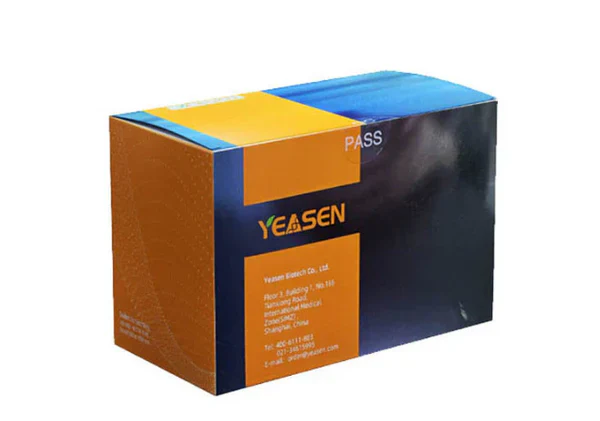Description
Phalloidin is a cyclic heptapeptide toxin derived from the death cap mushroom (Amanita phalloides). It binds to filamentous actin (F-actin) with high affinity (Kd = 20 nM) and does not bind to globular actin (G-actin). It is commonly used to label F-actin in tissue sections, cell cultures, or cell-free systems for qualitative and quantitative analysis. Phalloidin derivatives also bind to actin filaments from both animal and plant sources, including muscle and non-muscle cells, at a stoichiometric ratio of approximately one phalloidin molecule per actin subunit. Non-specific binding is negligible, providing clear distinction between stained and unstained regions. Therefore, phalloidin derivatives are particularly suitable as a substitute for actin antibodies in related research. Additionally, phalloidin derivatives are small, with a diameter of approximately 12-15 Å and a molecular weight of less than 2000 Daltons. Many physiological properties of actin are maintained, such as the ability to interact with actin-binding proteins like myosin, tropomyosin, and DNase I. Phalloidin-labeled filaments can still penetrate solid myosin matrices, and glycerol-extracted muscle fibers can contract after labeling.
Phalloidin binding inhibits the depolymerization of filamentous actin (microfilaments), stabilizing their structure and disrupting the dynamic equilibrium of polymerization and depolymerization. This property reduces the critical concentration (CC) for actin polymerization to less than 1 µg/mL, making it a potent polymerization promoter. Additionally, phalloidin inhibits the ATP hydrolysis activity of F-actin.
This product is phalloidin labeled with iFluor™ 647, which offers high brightness and photostability. It has strong specificity and high contrast in staining, providing better results than actin antibodies for the qualitative and quantitative detection of F-actin. Phalloidin-iFluor™ 647 Conjugate staining is fully compatible with other fluorescent staining methods used in cell analysis, including fluorescent proteins, Qdot® nanocrystals, and other iFluor™ conjugates (including iFluor™ secondary antibodies). The F-actin bound by this product maintains many of the biological properties of actin itself. Moreover, this product has no species specificity and is widely applicable.
This product is provided as a powder in small granules. Dissolve it in 30 µL of DMSO to prepare a 1 mg/mL solution.
Features
Binds selectively to filamentous actin (F-actin).
Phalloidin is not species-specific and exhibits virtually no non-specific staining, providing extremely clear contrast between stained and unstained regions.
It is highly compatible and does not affect the activity of actin.
Applications
The tight and selective binding to F-actin reveals the distribution of microfilament cytoskeleton within the cell.
Specifications
|
Molecular Weight |
~2200 |
|
Excitation/Emission |
650/665 nm |
|
Solubility |
Soluble in DMSO |
|
Structure |

|
Components
|
Components No. |
Name |
40762ES75 |
|
40762 |
Phalloidin-iFluor™ 647 Conjugate |
300 T |
Shipping and Storage
The product is shipped with ice pack. Can be stored at -15°C ~-25°C in a dark, dry environment for up to one year.
Documents:
Safety Data Sheet
Manuals
Citations & References:
[1] He YZ, Wang YM, Yin TY, Cuellar WJ, Liu SS, Wang XW. Gut-Expressed Vitellogenin Facilitates the Movement of a Plant Virus across the Midgut Wall in Its Insect Vector. mSystems. 2021;6(3):e0058121. doi:10.1128/mSystems.00581-21(IF:6.496)
[2] Li T, Liu Y, Zhang Q, Sun W, Dong Y. A steroid-induced osteonecrosis model established using an organ-on-a-chip platform. Exp Ther Med. 2021;22(4):1070. doi:10.3892/etm.2021.10504(IF:2.447)
Payment & Security
Your payment information is processed securely. We do not store credit card details nor have access to your credit card information.
Inquiry
You may also like
FAQ
The product is for research purposes only and is not intended for therapeutic or diagnostic use in humans or animals. Products and content are protected by patents, trademarks, and copyrights owned by Yeasen Biotechnology. Trademark symbols indicate the country of origin, not necessarily registration in all regions.
Certain applications may require additional third-party intellectual property rights.
Yeasen is dedicated to ethical science, believing our research should address critical questions while ensuring safety and ethical standards.

